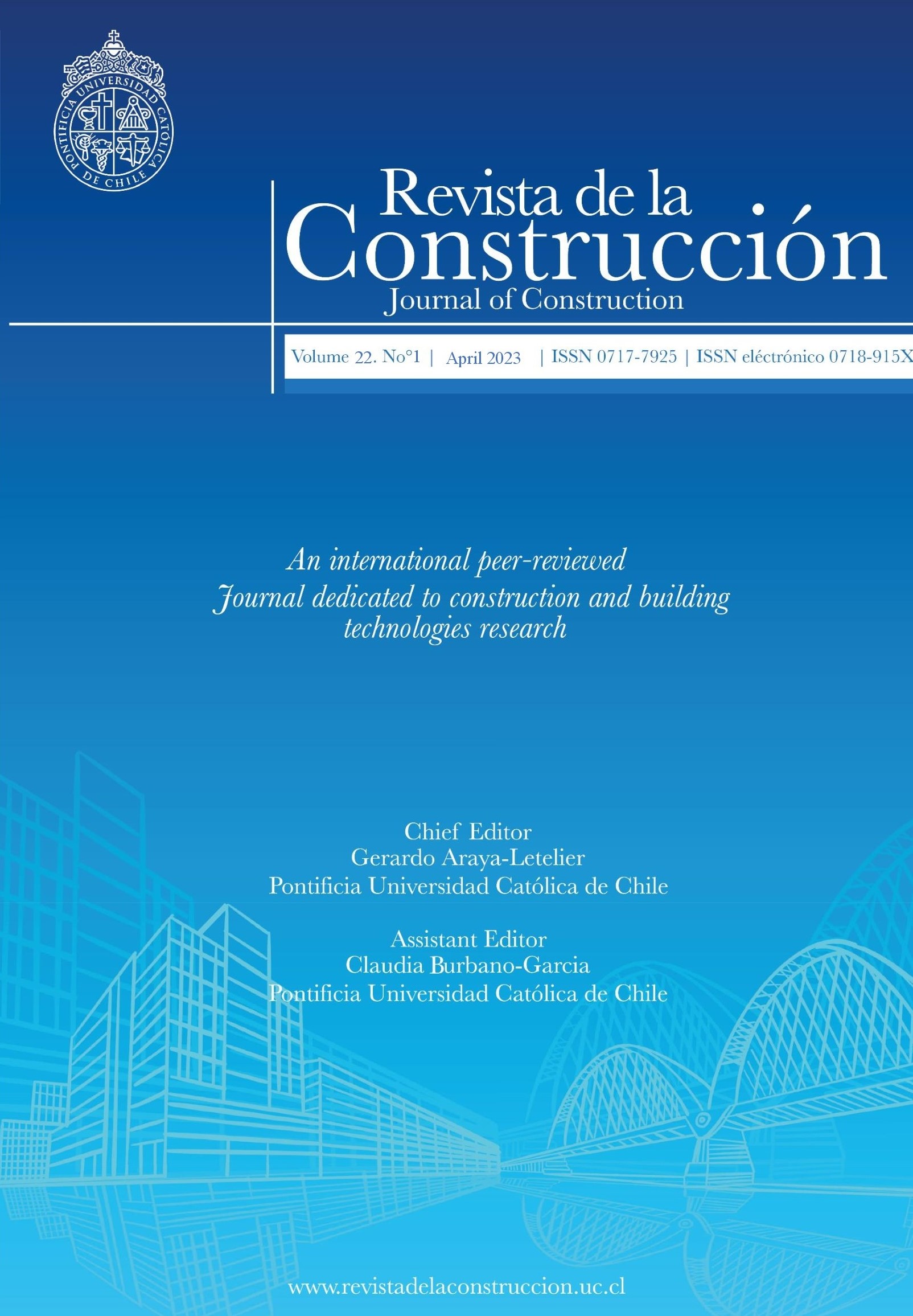Machine learning methods for prediction real estate sales prices in Turkey
DOI:
https://doi.org/10.7764/RDLC.22.1.163Keywords:
Real Estate Price, Prediction, Machine Learning, Neural Networks, AnkaraAbstract
Owning a house is one of the most important decisions that low and middle income people make in their lives. The real estate market is a significant factor of the national economy as much as it is important for individuals. Therefore, predicting real estate values or real estate valuation is beneficial and necessary not only for buyers, but also for real estate agents, economists and policy makers. This issue represents an active area of research, as individuals, companies and governments hold considerable assets in real estate. In this context, the aim of the study is to predict real estate prices with Machine Learning methods using the real estate sales data set in June and July 2021 belonging to the province of Ankara. In particular, it is to perform a comprehensive comparison on Machine Learning regression types methods that give successful prediction results in various but similar tasks, which are not included in the real estate literature. Real estate data obtained over the Internet was first included in a detailed data preprocessing process, and then Linear, Lasso and Ridge Regression, XGBoost and Artificial Neural Networks (ANN) methods were used on this dataset. According to empirical findings, XGBoost and ANNs appear as very important alternatives in predicting real estate sales prices.
Downloads
References
Afonso, B., Melo, L., Oliveira, W., Sousa, S., & Berton, L. (2019). Housing Prices Prediction with a Deep Learning and Random Forest Ensemble. In Anais do XVI Encontro Nacional de Inteligência Artificial e Computacional,389-400.
Alexandridis, A. K., Karlis, D., Papastamos, D., & Andritsos, D. (2019). Real Estate valuation and forecasting in non- homogeneous markets: A case study in Greece during the financial crisis, Journal of the Operational Research Society, 70(10), 1769-1783. https://doi.org/10.1080/01605682.2018.1468864
Alfaro-Navarro, J. L., Cano, E. L., Alfaro-Cortés, E., García, N., Gámez, M., & Larraz, B. (2020). A fully automated adjustment of ensemble methods in machine learning for modeling complex real estate systems. Complexity, Article ID: 5287263. https://doi.org/10.1155/2020/5287263.
Aydemir, E., Aktürk, C., & Yalçınkaya, M. A. (2020). Estimation of Housing Prices with Artificial Intelligence, Turkish Studies, 15(2), 183-194.
Baldominos, A., Blanco, I., Moreno, A. J., Iturrarte, R., Bernárdez, Ó., & Afonso, C. (2018). Identifying Real Estate Opportunities Using Machine Learning, Applied sciences, 8(11), 2321. https://doi.org/10.3390/app8112321.
Bin, J., Tang, S., Liu, Y., Wang, G., Gardiner, B., Liu, Z., & Li, E. (2017). Regression model for appraisal of real estate using recurrent neural network and boosting tree. In 2017 2nd IEEE international conference on computational intelligence and applications (ICCIA), 209-213. IEEE.
Chen, T. & Guestrin, C. (2016). XGBoost: “A Scalable Tree Boosting System”, Proceedings of the 22nd acm sigkdd international conference on knowledge discovery and data mining, 785-794.
Çılgın, C., Ünal, C., Alici, S., Akkol, E., & Gökşen, Y. (2020). In Text Classification, Bitcoin Prices and Analysis of Expectations in Social Media with Artificial Neural Networks. Mehmet Akif Ersoy University Journal of Applied Sciences, 4(1), 106-126.
Do, A. Q., & Grudnitski, G. (1992). A neural network approach to residential property appraisal. The Real Estate Appraiser, 58(3), 38-45.
Doumpos, M., Papastamos, D., Andritsos, D., & Zopounidis, C. (2021). Developing automated valuation models for estimating property values: a compari-son of global and locally weighted approaches. Annals of Operations Research, 306(1), 415-433.
Ecer, F. (2014). Comparision of Hedonic Regression Method and Artificial Neural Networks to Predict Housing Prices in Turkey. In International Confer-ence On Eurasian Economies,1-10.
Fan, C., Cui, Z., & Zhong, X. (2018, February). House prices prediction with machine learning algorithms. In Proceedings of the 2018 10th International Conference on Machine Learning and Computing (pp. 6-10).
Han, J., M. Kamber & J. Pei. (2011). Data Mining: Concepts and Techniques, 2011, USA: Elsevier.
Işık, C. (2016). Environment, Structure And Social Differentiation Of Housing Prices In Erzurum: Hedonic Pricing Method. Erzincan University Journal of Social Sciences Institute, 8(2), 23-32.
Janssen, C., Söderberg, B., & Zhou, J. (2001). Robust estimation of hedonic models of price and income for investment property. Journal of Property Investment & Finance, 19(4), 342-360. https://doi.org/10.1108/EUM0000000005789.
Kuru, M., Erdem, O. and Calis, G. (2021). Sale price classification models for real estate appraisal. Revista de la Construcción. Journal of Construction, 20(3), 440-451. https://doi.org/10.7764/RDLC.20.3.440.
Lawrence, R. J. (1987). Housing, dwellings and homes: Design theory, research and practice.
LeCun, Y., Bengio, Y., & Hinton, G. (2015). Deep learning. Nature, 521(7553), 436-444.
Liang, Y., Wu, J., Wang, W., Cao, Y., Zhong, B., Chen, Z., & Li, Z. (2019). Product marketing prediction based on XGboost and LightGBM algorithm. In Proceedings of the 2nd International Conference on Artificial Intelligence and Pattern Recognition, 150-153.
Liu, J. G., Zhang, X. L. and Wu, W. P. (2006, May). Application of fuzzy neural network for real estate prediction. In International Symposium on Neural Networks (pp. 1187-1191). Springer, Berlin, Heidelberg.
Liu, F. T., Ting, K. M., & Zhou, Z. H. (2008). Isolation forest. In 2008 Eighth IEEE International Conference on Data Mining, 413-422. IEEE.
Özsoy, O., & Şahin, H. (2009). Housing price determinants in Istanbul, Turkey: An application of the classification and regression tree model. International Journal of Housing Markets and Analysis, 2(2), 167-178. https://doi.org/10.1108/17538270910963090
Öztemel, E. (2003). “Artificial neural networks”. PapatyaYayincilik, Istanbul, 21-22.
Pagourtzi, E., Assimakopoulos, V., Hatzichristos, T., & French, N. (2003). Real estate appraisal: a review of valuation methods. Journal of Property In-vestment & Finance, 21(4), 383-401. https://doi.org/10.1108/14635780310483656.
Peterson, S., & Flanagan, A. (2009). Neural network hedonic pricing models in mass real estate appraisal”. Journal of Real Estate Research, 31(2), 147-164.
Renigier-Biłozor, M., & Wiśniewski, R. (2012). The impact of macroeconomic factors on residential property price indices in Europe. Folia Oeconomica Stetinensia, 12(2), 103-125. https://doi.org/10.2478/v10031-012-0036-3.
Rossini, P. (1999, January). Accuracy issues for automated and artificial intelligent residential valuation systems. In International real estate society confer-ence, 1-10.
Şahinler, S. (2000). The basic principles of constructing a linear regression model using the least squares method., Mustafa Kemal Üniversitesi Ziraat Fakültesi Dergisi, 5(1-2), 57-73.
Sangani, D., Erickson, K., & Al Hasan, M. (2017, October). Predicting zillow estimation error using linear regression and gradient boosting. In 2017 IEEE 14th International Conference on Mobile Ad Hoc and Sensor Systems (MASS) (pp. 530-534). IEEE.
Selim, H. (2009). Determinants of house prices in Turkey: Hedonic regression versus artificial neural network. Expert systems with Applications, 36(2), 2843-2852. https://doi.org/10.1016/j.eswa.2008.01.044.
Seya, H. and Shiroi, D. (2022). A comparison of residential apartment rent price predictions using a large data set: Kriging versus deep neural net-work. Geographical Analysis, 54(2), 239-260.
Sing, T. F., Yang, J. J., & Yu, S. M. (2021). Boosted Tree Ensembles for Artificial Intelligence Based Automated Valuation Models (AI-AVM). The Journal of Real Estate Finance and Economics, 1-26.
Varma, A., Sarma, A., Doshi, S., & Nair, R. (2018). “House Price Prediction Using Machine Learning and Neural Networks”. In 2018 Second International Conference on Inventive Communication and Computational Technologies (ICICCT), 2018, 1936-1939. IEEE.
Walker, E., & Birch, J. B. (1988). Influence measures in ridge regression, Technometrics, 30(2), 1988, 221-227.
Wu, C., & Sharma, R. (2012). Housing submarket classification: The role of spatial contiguity. Applied Geography, 32(2), 746-756. https://doi.org/10.1016/j.apgeog.2011.08.011.
Yalpir, S., Sisman, S., Akar, A. U., & Unel, F. B. (2021). Feature selection applications and model validation for mass real estate valuation systems. Land use policy, 108, 105539.
Yayar, R., & Deniz, G. Ü. L. (2014). Hedonic Estimation of Housing Market Prices in Mersin City Center. Anadolu UniversityJournal of Social Scienc-es, 14(3), 87-100.
Yazdani, M. (2021). Machine Learning, Deep Learning, and Hedonic Methods for Real Estate Price Prediction. arXiv preprint arXiv:2110.07151.
Yılmazel, Ö., Afşar, A., & Yılmazel, S. (2018). Using Artificial Neural Network Method to Predict Housing Prices, International Journal of Economic & Administrative Studies, (20), 285 – 300.
Zhao, Y., Chetty, G., & Tran, D. (2019). Deep Learning with XGBoost for Real Estate Appraisal. In 2019 IEEE Symposium Series on Computational Intelligence (SSCI), 1396-1401. IEEE.
Downloads
Published
Versions
- 2023-05-03 (5)
- 2023-05-01 (4)
- 2023-05-01 (3)
- 2023-05-01 (2)
- 2023-05-01 (1)
How to Cite
Issue
Section
License
Copyright (c) 2023 Cihan Çılgın, Hadi Gökçen

This work is licensed under a Creative Commons Attribution-NonCommercial-NoDerivatives 4.0 International License.








